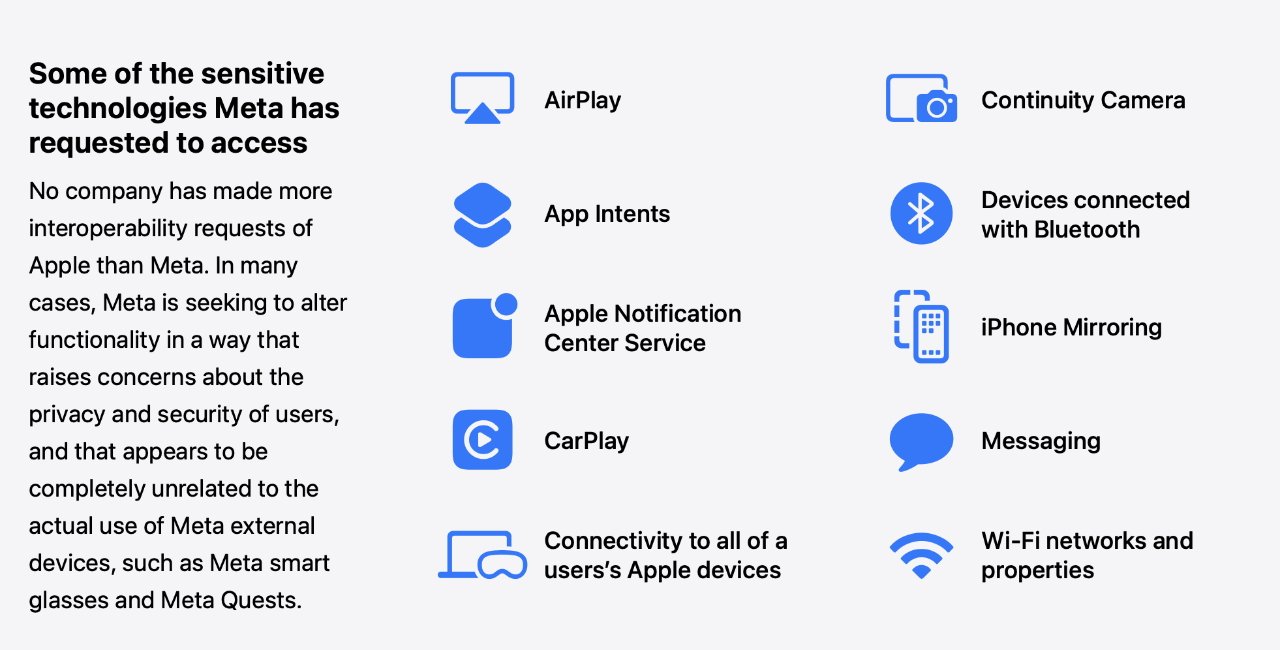EU asks Apple to open up iPhone to rivals
Apple has printed a white paper that backs the European Union’s coverage of interoperability between rival expertise corporations, however says the regulation is open to dangerous interpretation.
In an analogous transfer to its March 2024 elevating of safety issues in regards to the Digital Markets Act, Apple has printed a white paper in regards to the EU’s interoperability legal guidelines. Interoperability is the requirement that Apple share its expertise with rivals, in order that they will present customers with options similar to recording audio by way of an iPhone’s microphone.
It follows the EU’s publication of a doc asking Apple to alter its proprietary expertise to be accessible by rivals. Apple’s white paper, known as “It’s getting personal”, argues that “abuse of the DMA’s interoperability mandate could expose your private information.”
Apple is being fairly specific in saying that it doesn’t disagree with the EU and that it isn’t criticizing the mandate. What it’s saying is that it believes the mandate is open to interpretation, and that grey areas will result in issues if they don’t seem to be prevented.
Particularly, its white paper says that Apple receives what it describes as interoperability requests from many corporations. If it have been required by regulation to grant all of these requests, it says, there’s a threat that corporations “may attempt to abuse” the mandate.

Apple is anxious about what Meta has requested it for — picture supply: Apple
“As an example of our concerns, Meta has made 15 requests (and counting) for potentially far-reaching access to Apple’s technology stack that, if granted as sought, would reduce the protections around personal data that our users have come to expect from their devices,” it says.
Apple then lists all of these 15 requests, which vary from iPhone mirroring to “connectivity to all of a user’s Apple devices.” Apple says that in lots of circumstances, the requests seem “to be completely unrelated to the actual use of Meta external devices, such as Meta smart glasses and Meta Quests.”
In case that is not clear sufficient, Apple provides a warning that it is inconceivable to think about what the ramifications of the mandate will probably be.
“For instance, if a user asks Siri to read out loud the latest message received via WhatsApp, Meta or other third parties could indirectly gain access to the contents of the message,” it says. “No one is in a position to understand the full risks of that.”
Apple claims that doubtlessly this DMA mandate may very well be used as a manner for corporations to avoid Europe’s stringent Normal Information Safety Regulation (GDPR). This can be a “strong set of privacy rules… which Apple has always supported.”
What Apple desires to occur subsequent
After then describing the steps it goes by way of when an organization requests interoperability with Apple expertise, the corporate concludes its white paper with a type of mission assertion.
“Apple’s high standards for privacy and security are what set us apart,” it says. “Our users depend on it. We want users and developers alike to benefit from the great features and functionalities of iPhone — safely.”
“We will never abandon our bedrock commitment to our users’ privacy and security,” it continues. “We trust that the EC will seek to implement the interoperability requirements in a manner that respects the GDPR.”
Individually, Apple Intelligence was initially delayed in Europe over what look like associated questions of interoperabilty. It isn’t clear but how that is being resolved, however Apple has dedicated to Apple Intelligence being out there in EU international locations and languages together with French, Germany, and Italy.